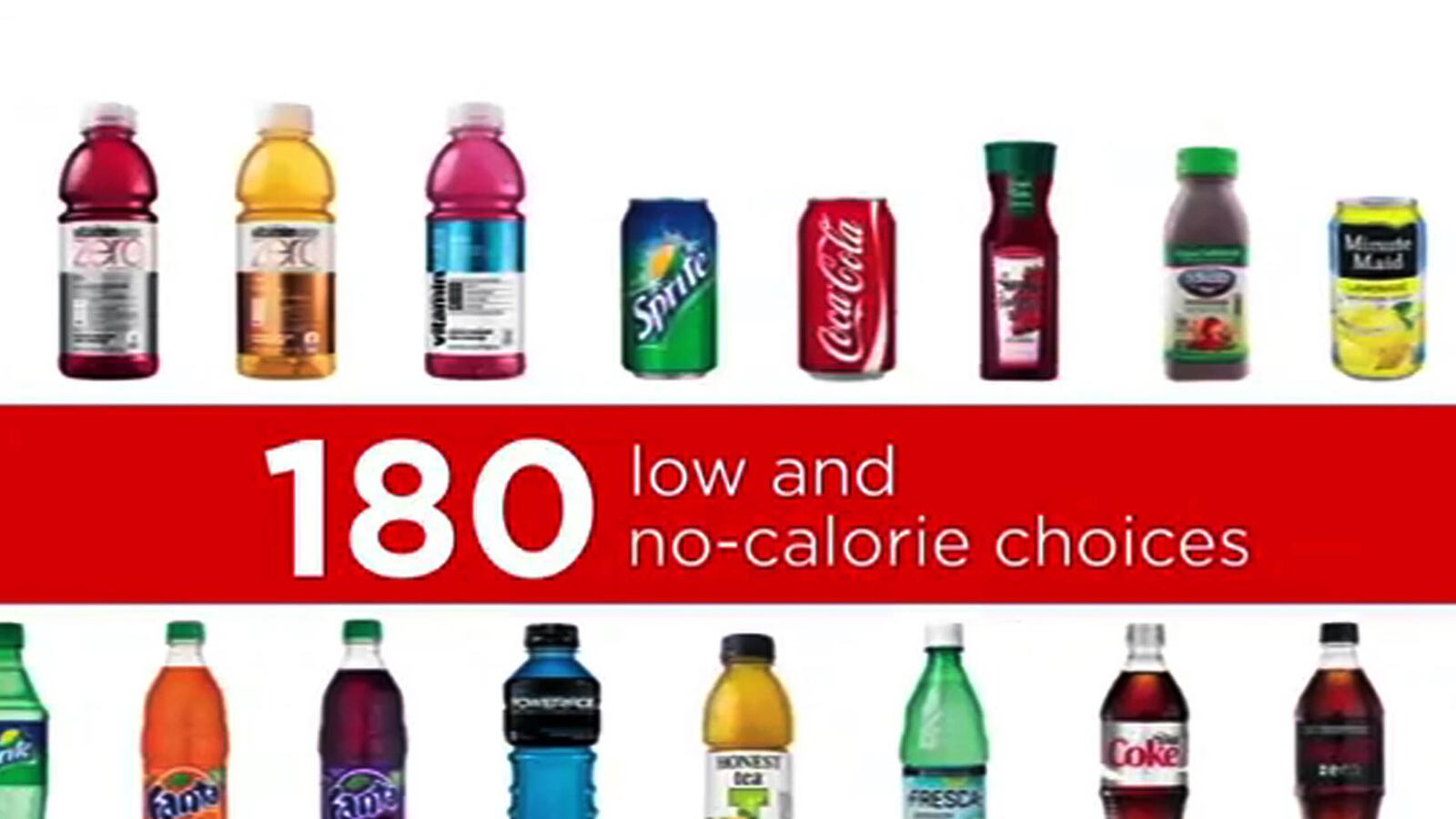From school bans to tax initiatives to New York City’s big-gulp shutdown, soda sure has gotten a bad rap lately.
Clearly tired of being hated on, Coca-Cola is taking matters into its own hands. For the first time its 125-year history, the company addresses obesity in a new television ad, rolling out a slickly-produced two-minute spot with the saccharine title, “Coming Together.”
In the ad, slated to hit airwaves this week, Coca-Cola encourages soda drinkers to step away from its regular and oversized beverages—though they fully intend to keep producing them—and instead feast their eyes on the portion-control cans coming soon to a grocery store near you. Of course, as ABC News points out the Coca-Cola mini—the smallest-sized can on the market—still carries the equivalent of about six sugar cubes.
Hey, that still sounds like a lot, doesn’t it? But consider the alternatives. One regular 20-fluid-ounce bottle of Coke—like the kind you’d get out of a vending machine—packs about 14 sugar cubes, 240 calories, 75 milligrams of sodium, and 65 grams of carbohydrates, not to mention a highly-disputed variety of ingredients that may or may not include high-fructose corn syrup, caramel coloring, citric acid and vanilla.
But who is holding a gun to your head telling you to drink one of Coca-Cola’s line of 470 fattening beverages, the new ad implies, when they also have 180 low- and no-calorie products for you to choose from? Why grab a regular Coke when you could be just as refreshed by 8 fluid ounces of aspartame, citric and phosphoric acid and potassium benzoate? So what if you don’t really know what any of that is but are pretty sure it isn’t grown in nature and have heard that artificial sweeteners can produce just as many fatty acids as regular sugar? A can of Diet Coke may have 20 mg of sodium but it has zero calories and that’s all that matters.
Coca-Cola’s biggest argument here seems to be, “We did not make you fat, you made you fat. Now let us help you.” After patting itself on the back for swapping out high-calorie drinks for water, juices, and diet sodas in most school vending machines—as if it was their idea—the ad’s soft-spoken narrator continues to insist that Coca-Cola cares about kids by pointing out that the cola conglomerate is a supporter of the Boys and Girls Club of America, mostly because of the organization’s efforts to teach young people to stay active.
Which brings us to the kicker: exercise! “Calories count, no matter where they come from, including Coca-Cola and everything else with calories,” states the narrator. “And if you eat and drink more than you burn off, you’ll gain weight.” Arnold School, a University of South Carolina Public Health professor to whom Coca-Cola referred ABC News (apparently to speak on its behalf), echoed the cola company’s argument that “declining physical activity over recent decades” is to blame for the obesity epidemic.
“So professional. So brilliant. So smart. And so deceitful. Seven percent of our calories come from soda—it’s the biggest single source in our diet. And the most harmful,” said the New York Times food writer in an email to New York magazine’s Grub Street. “It’s good that Coke recognizes that and is beginning to apologize. But all calories are not the same—those from soda and other sugar-sweetened beverages are actually worse than others. So it’s up to us to remember that Coke makes money selling sugar-sweetened beverages, and even when they’re apologizing for that, as they appear to be doing here—they’re still selling them.”
Enough said.





